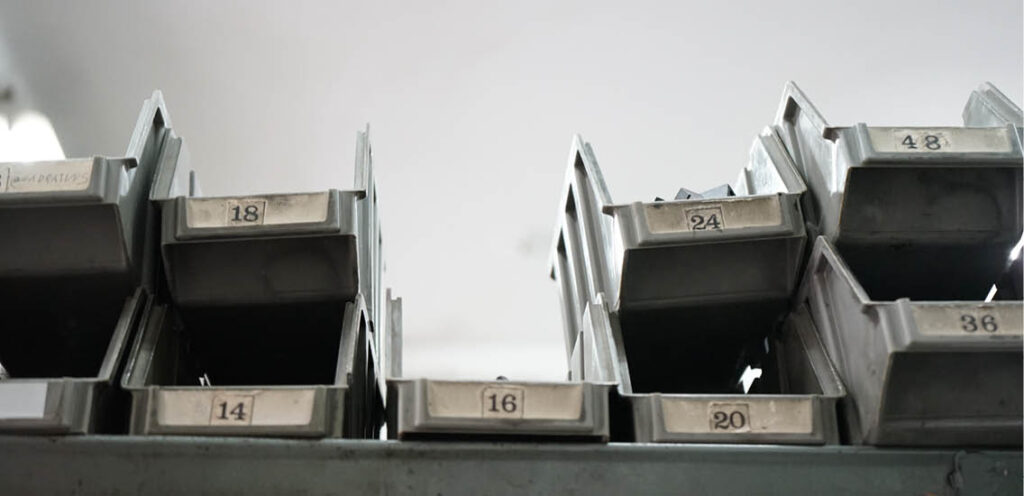The project is based on growing evidence of craft and small-scale industries in Northern and Central Portugal dissipating due to modern-day commercial and technological realities; in conjunction, it considers four related case studies as vantage points for understanding the underlying factors and impacts of such capitulation. These comprise contexts of handweaving, tilemaking, shoemaking, and letterpress typography.
Anti-Amnesia’s research methodology has been underpinned by ethnographic methods from the social sciences that have proven to be highly effective when applied in an articulated manner with more intuitive approaches of design. The research team has accordingly worked closely with members of the associated practice communities in order to uncover uniqueness in terms of perspectives and elements of materiality and culture that can potentially help extend the associated value propositions.
The mediation process has thus included: building human and social narratives through gathering personal testimonies, stories, and anecdotes; documenting related folkloric customs and traditions; documenting materials, processes, and tools; documenting produced articles, designs, patterns and other visual materials; collecting specimens of products, swatches, and samples; collecting specimens of contextual externalities, including residual material;
collating previously published media and academic articles on the specific contexts, and the associated craft practices in general. Upon documentation and archiving, the obtained information has formed an evidential base that has been further analyzed in order to determine different forms of embedded ‘value’ in the respective practice cultures, and has correspondingly been utilized as a generative resource for creative research actions, including design-led reinterpretations.
The curricular premise of the project’s learning-based collaboration with Almalaguês handweaving has been to acknowledge its historical and semantic capital by means of reinterpreting its visual and material culture through contemporary design. The conducted modules have invited practitioners from both craft and design to engage in a productive dialogue towards fostering opportunities for interdisciplinary and intergenerational learning.

The project is based on growing evidence of craft and small-scale industries in Northern and Central Portugal dissipating due to modern-day commercial and technological realities; in conjunction, it considers four related case studies as vantage points for understanding the underlying factors and impacts of such capitulation. These comprise contexts of handweaving, tilemaking, shoemaking, and letterpress typography.
Anti-Amnesia’s research methodology has been underpinned by ethnographic methods from the social sciences that have proven to be highly effective when applied in an articulated manner with more intuitive approaches of design. The research team has accordingly worked closely with members of the associated practice communities in order to uncover uniqueness in terms of perspectives and elements of materiality and culture that can potentially help extend the associated value propositions. The mediation process has thus included: building human and social narratives through gathering personal testimonies, stories, and anecdotes; documenting related folkloric customs and traditions; documenting materials, processes, and tools; documenting produced articles, designs, patterns and other visual materials; collecting specimens of products, swatches, and samples; collecting specimens of contextual externalities, including residual material; collating previously published media and academic articles on the specific contexts, and the associated craft practices in general. Upon documentation and archiving, the obtained information has formed an evidential base that has been further analyzed in order to determine different forms of embedded ‘value’ in the respective practice cultures, and has correspondingly been utilized as a generative resource for creative research actions, including design-led reinterpretations.
The curricular premise of the project’s learning-based collaboration with Almalaguês handweaving has been to acknowledge its historical and semantic capital by means of reinterpreting its visual and material culture through contemporary design. The conducted modules have invited practitioners from both craft and design to engage in a productive dialogue towards fostering opportunities for interdisciplinary and intergenerational learning.
The project “Anti-Amnésia: Investigação em Design como agente para a regeneração e reinvenção, narrativas e materiais, de culturas e técnicas de manufactura portuguesas em desaparecimento” (POCI-01-0145-FEDER-029022) is supported by Competitiveness and Internationalisation Operational Programme (POCI), under the PORTUGAL 2020 Partnership Agreement, through the European Regional Development Fund (ERDF) and through national funds by the FCT – Fundação para a Ciência e a Tecnologia.